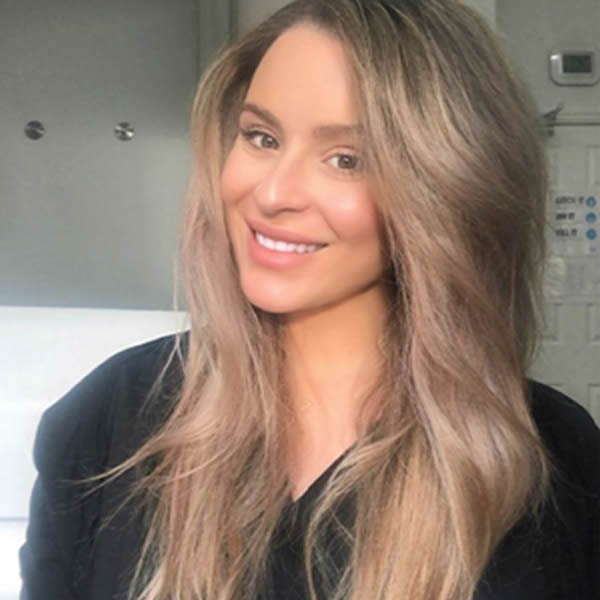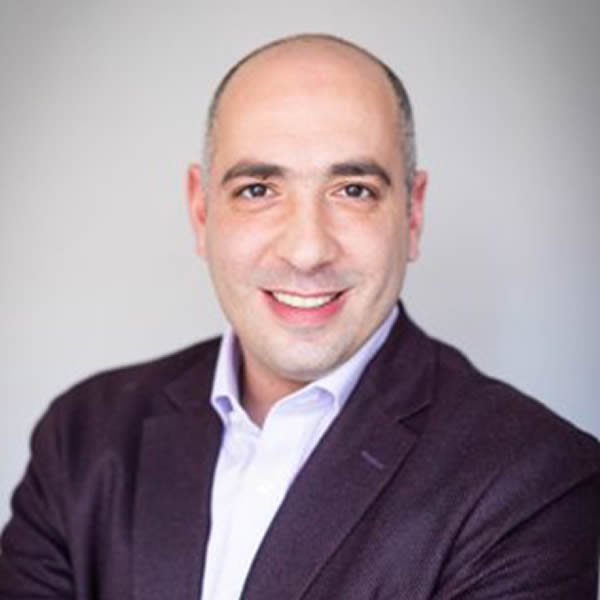Urinary Incontinence in Women
Urinary incontinence is involuntary loss of urine, what is not socially or hygienically acceptable. Millions of women experience involuntary loss of urine, meaning they pass or leak urine when they do not intend to. Some women may lose a few drops of urine while running or coughing. Others may feel a strong, sudden urge to urinate just before losing a large amount of urine. Many women experience both symptoms. Urinary Incontinence can be slightly bothersome or totally debilitating. For s ome women, the risk of public embarrassment keeps them from enjoying many activities with their family and friends. Urine loss can also occur during sexual activity and cause great emotional distress.
Urinary Incontinence is quite common and can occur at any age, but it is more likely to develop as you get older. It is estimated that about three million people in the UK are regularly incontinent. Overall this is about 4 in 100 adults. However, as many as 1 in 5 women over the age of 40 have some degree of urinary incontinence. It is likely that the true number of people affected is much higher. Many people do not tell their doctor about their incontinence, due to embarrassment. Some people wrongly think that incontinence is a normal part of ageing or that it cannot be treated. This is unfortunate as many cases can be successfully treated or significantly improved .
Understanding Your WaterWorks
The kidneys make urine continuously. A trickle of urine is constantly passing to the bladder down the ureters (the tubes from the kidneys to the bladder). You make different amounts of urine depending on how much you drink, eat and sweat. The bladder is made of muscle and stores the urine. It expands like a balloon as it fills with urine. The outlet for urine (the urethra) is normally kept closed. This is helped by the muscles below the bladder that surround and support the urethra (the pelvic floor muscles). When a certain volume of urine is in the bladder, you become aware that the bladder is getting full. When you go to the toilet to pass urine, the bladder muscle contracts (squeezes), and the urethra and pelvic floor muscles relax to allow the urine to flow out. Complex nerve messages are sent between the brain, the bladder, and the pelvic floor muscles. These tell you how full your bladder is, and tell the correct muscles to contract or relax at the right time.
Types of Urinary Incontinence
There are several different types of urinary incontinence:
Stress incontinence is the most common type. It occurs when the pres sure in the bladder becomes too great for the bladder outlet to withstand. This is usually caused by weak pelvic floor muscles. Urine tends to leak most when you cough, laugh, sneeze or when you exercise (such as when you jump or run). In these situations there is a sudden extra pressure (stress) inside the abdomen and on the bladder. Small amounts of urine often leak. Sometimes much larger volumes of urine are accidentally passed. Pelvic floor muscles are often weakened by childbirth. Stress incontinence is common in women who have had several children, in obese people and with increasing age.
Urge incontinence (unstable or overactive bladder) is the second most common cause. This is when you get an urgent desire to pass urine. Sometimes urine leaks before you have time to get to the toilet. The bladder muscle contracts too early and the normal control is reduced. In most cases, the cause of urge incontinence is not known. This is called idiopathic urge incontinence. It seems that the bladder muscle gives wrong messages to the brain, and the bladder may feel fuller than it actually is. Sometimes urge incontinence can occur because of problems with the nervous system (the brain, spinal cord and other nerves in the body). Illnesses or diseases affecting the nervous system are called neurological disorders. Some people with certain neurological disorders may experience urge incontinence. Examples are Parkinson’s disease, multiple sclerosis (MS), spinal cord injury and after stroke.
Mixed incontinence. Women with genuine stress incontinence and overactive bladder are said to have mixed incontinence. For these patients, it is helpful to identify the most bothersome symptom and treat accordingly.
Overflow incontinence. This is when there is an obstruction to the outflow of urine. The obstruction prevents the normal emptying of the bladder. A pool of urine constantly remains in the bladder that cannot empty properly. This is called chronic urinary retention. Consequently, pressure builds up behind the obstruction. The normal bladder emptying mechanism becomes faulty and urine may leak past the blockage from time to time. Treatment depends on the cause.
Bedwetting (nocturnal enuresis) occurs in many children, but some adults are affected.
Functional incontinence is the name given to urinary incontinence where there is nothing obviously wrong with the nervous system controlling the bladder or the lower urinary tract (bladder/urethra) itself. An example would be incontinence because you were unable to reach the toilet, due to poor mobility.
Other types of incontinence exist. They include incontinence of urine when there is a congenital abnormality (birth defect) of the urinary tract; and problems that can occur after injury, accident or during operations.
Assessment and Treatment
An initial diagnosis of urinary incontinence can be made on the basis of a history alone, helped by physical examination and a few simple laboratory tests. Initial treatment may be based on these findings. If complex conditions are present or if initial treatments are unsuccessful, definitive specialized studies are required. Urinary incontinence can often be improved, and can be cured in many cases. Urinary incontinence is treated differently according to the type and cause.
Assessment
It is important to know which type of incontinence you have. Tell your doctor if you leak urine on a regular basis. He or she will be able to assess your symptoms, examine you, and may do some simple tests to try to clarify the cause. You may also be asked to keep a diary for at least three days to assess how often you go to the toilet, how much urine you pass each time, and how often you leak urine. Sometimes a referral to a specialist is needed to clarify the type of incontinence. The sort of tests that may be done by your GP or specialist to clarify the cause include the following:
- Urinalysis. This is a simple dipstick test to check for infection, glucose (sugar), blood or protein in urine. A urinary tract infection (UTI) can cause incontinence, particularly in ol der people. Diabetes causes sugar in the urine and may cause increased thirst and an increased desire to urinate. Diabetes also puts you at more risk of UTI.
- Residual urine. This test finds out if any urine is left in your bladder, and how much urine is l eft, after you have gone to the toilet. The amount of urine is usually measured using an ultrasound scan which can look at your bladder and measure the amount of urine in it. Sometimes, another method is used: a doctor or nurse may pass a thin catheter (a thin soft tube) into the bladder via the urethra. Urine then drains out to be measured.
- Vaginal and anal examination. A doctor or nurse may insert a gloved finger into the vagina to assess the strength and tone of the pelvic floor muscles, and if there is any problem with bladder or urethra or if these are signs of pelvic organ prolapse during the vaginal examination.
- Urodynamics. These are tests of urine flow that are sometimes done in a hospital unit if the cause of the problem is not clear. Urodynamics may also be carried out where surgery is considered to treat the problem (see below).
- Bladder Diary – The 24-hour bladder diary can provide an accurate record of urinary output, average voided volume, frequency of voiding, and frequency and nature of incontinent episodes, as well as type and volume of fluid intake. You may be asked to catch and measure you urine output in a measuring cup during any “normal” 24-hour period you choose.
Treatment
Treatment depends on the type of incontinence, whether it is a Stress or Urge Incontinence (the commonest two types) or whether it is Mixed Incontinence. Conditions such as Bedwetting (Nocturnal Enuresis) will need to be addressed if relevant. For example: pelvic floor exercises may cure or improve stress incontinence ; bladder training may help urge incontinence; an alarm system may cure enuresis; medications are sometimes used to help stop urge and stress incontinence, and also to stop enuresis. Other types of incontinence are less common and treatments vary, depending on the cause. However, regardless of the type of incontinence, lifestyle changes may also significantly help some types of incontinence. These can include:
Managment of Fluid Intake
Changing How Much You Drink. If you drink large volumes, it follows that you will pass more urine. If you suffer with incontinence, you should not restrict your fluid intake too much, as you risk dehydration. Restricting fluids can also irritate the bladder and so make urge incontinence worse. However, if you drink excessively, moderation may improve your symptoms. 6-8 glasses of water per day is recommended by the NHS, but there is no scientific evidence we should drink that much. In practical terms, it is best to drink when we need to, to quench our thirst. Note that about one fifth of our daily water intake comes from food. that other drinks contain water.
Changing What You Drink may help. Drinks containing caffeine (for example, tea, coffee, hot chocolate and cola) make urge incontinence worse. This is because caffeine is a natural diuretic. Diuretics are chemicals that make you need to pass urine. You might consider switching to decaffeinated alternatives. Also, Changing When You Drink. You should try to maintain a normal life as much as possible with regard to drinking an d visiting the toilet. However, drinking late at night may mean your sleep is disturbed by the desire to get up and go to the toilet. If you have kept a bladder diary, the diary enables your doctor to make helpful suggestions regarding the type and amount of fluid intake.
Weight Loss.
It has been shown that losing a modest amount of weight can improve urinary incontinence in overweight and obese women. Even just 5-10% weight loss can help symptoms. If you are overweight and incontinent then you should first try to lose weight in conjunction with any other treatments.
Toilet habit.
This is also dealt with in bladder training but in general it is best to visit the toilet only when you need to, rather than “just in case”. Depending on how much (and what) you are drinking, and your level of activity (how much you are sweating), it is normal to pass urine every 3 -4 hours on average.
Avoiding Constipation.
Try to maintain a healthy balanced diet that contains plenty of fruit, vegetables and soluble fibre. Sever e chronic (long-term) constipation can stop the bladder emptying properly and cause overflow urinary incontinence (as well as faecal incontinence). Dehydration can also cause constipation.
Physiotherapist and Continence Advisor
Your GP may advise on treatment or refer you to a continence advisor for advice on bladder training and pelvic floor exercises. Sometimes physiotherapists can help with pelvic floor exercises. In some situations, you and your doctor may decide to wait and see how things go before trying treatment. This is because some mild cases get better on their own, over time without treatment. Sometimes a specialist (usually urogynaecologist) needs to be involved in more difficult cases. Surgery can be used to treat incontinence, especially stress incontinence. If your incontinence persists and is not helped by treatment, your local continence advisor can give practical advice on how to manage. They may be able to supply incontinence pants, pads and other products. These days there are many different aids, gadgets and appliances that can greatly help when living with incontinence.









Leave a Reply
Want to join the discussion?Feel free to contribute!